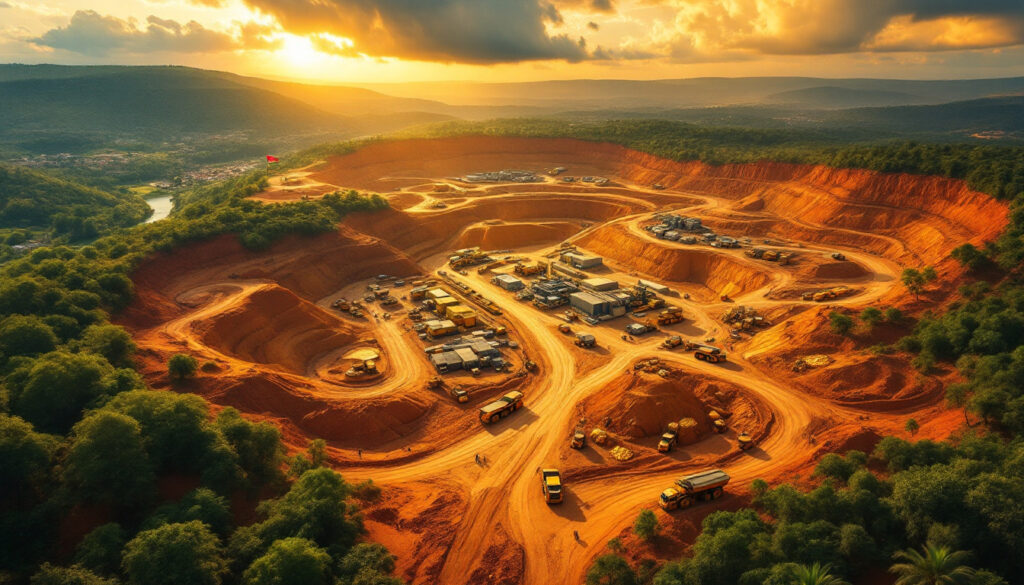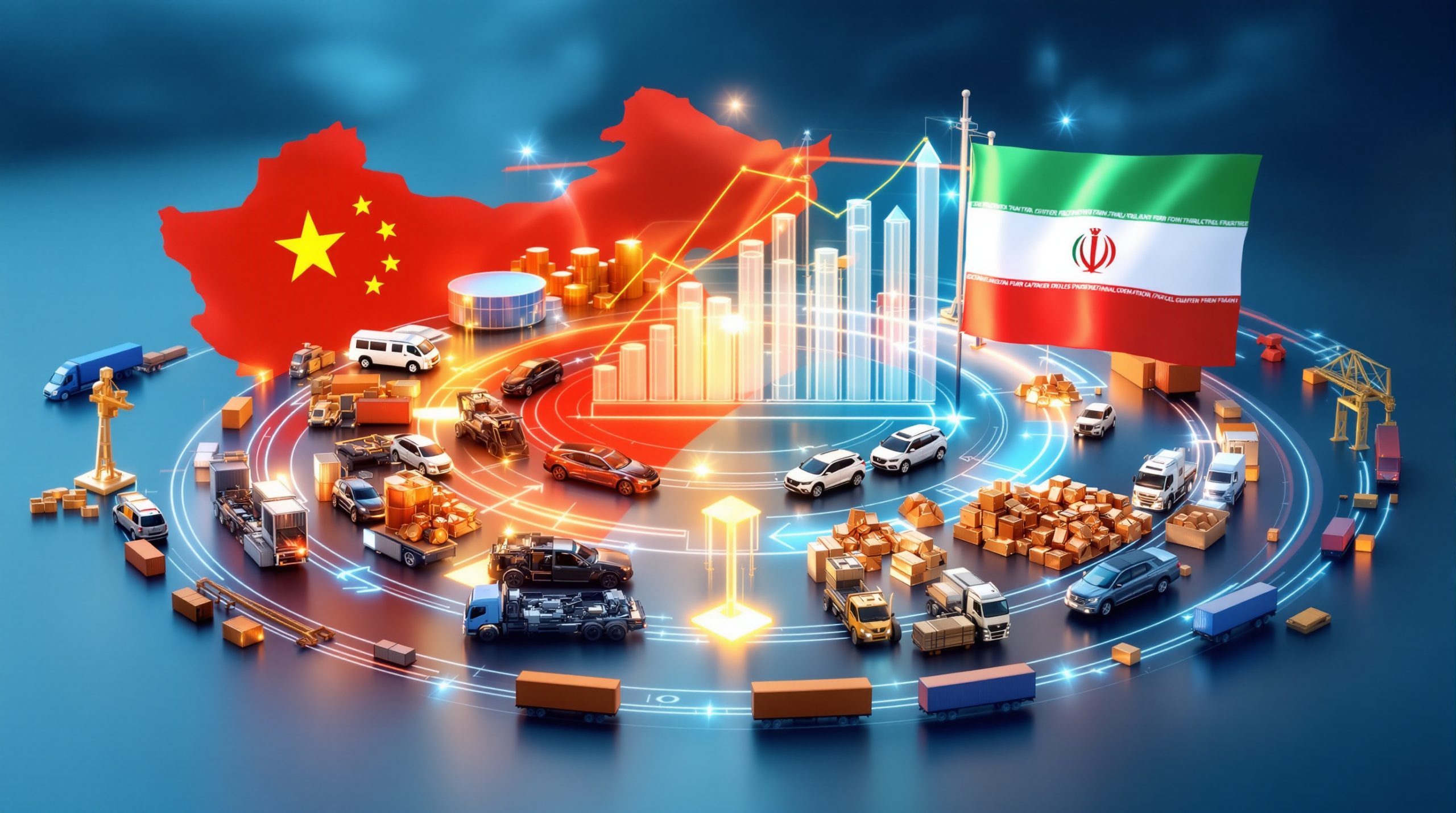What Happened to Gold Fields' Damang Mine in Ghana?
Ghana's government has taken control of Gold Fields' Damang mine after rejecting the South African mining company's lease renewal application. This decisive move marks a significant shift in Ghana's resource management approach, with the lease set to expire on April 18, 2025. Gold Fields, which had already ceased active mining operations at Damang in 2023 and was only processing stockpiles, must now prepare to transfer operational control to the Ghanaian authorities.
The Ministry of Lands and Natural Resources, which will oversee the transition, cited several specific shortcomings in Gold Fields' renewal application. Most notably, the government pointed to the company's failure to declare verifiable mineral reserves and the absence of a required technical program detailing both past and future mining activities at the site.
"The Damang mine's return to state oversight marks a critical step in Ghana's economic reset," stated the Ministry in its official announcement. The government has framed this decision as part of a broader initiative to ensure Ghana's mineral wealth directly benefits its citizens, rather than primarily serving foreign corporate interests.
This rejection breaks with Ghana's traditional practice of automatically renewing mining licenses for foreign operators, which the government now characterizes as a "neo-colonial" approach to resource management that it seeks to reform.
Key Details of the Government Takeover
The government's decision came after what appears to have been a thorough review of Gold Fields' renewal application, finding it fell short of regulatory requirements. According to the Ministry's statement, the application lacked critical technical documentation that would typically outline:
- Comprehensive mining plans for future operations
- Detailed reserve estimates with proper verification
- Historical operational data and performance metrics
- Environmental management and rehabilitation plans
This level of scrutiny represents a departure from past practices when license renewals were often processed with minimal resistance from government authorities.
Reasons Cited for the Government's Decision
Beyond the technical deficiencies in Gold Fields' application, Ghana's decision reflects a fundamental shift in mining policy. The government has explicitly positioned this move as part of its "economic reset" strategy, aimed at maximizing national benefit from the country's natural resources.
In rejecting the renewal, officials emphasized that future mining operations must present clear "value propositions" that align with national interests—suggesting a higher bar for foreign companies seeking to operate in Ghana's mineral sector.
The timing aligns with other policy changes, including Ghana's recent order for foreigners to exit its gold market entirely by April 30, 2025, indicating a coordinated approach to restructuring the country's relationship with international mining interests.
How Significant is the Damang Mine to Gold Fields?
While the Damang mine represents a relatively modest portion of Gold Fields' global portfolio, the takeover carries symbolic and strategic significance for both the company and Ghana's mining sector.
In production terms, Damang contributed approximately 135,000 ounces of gold in 2024, accounting for roughly 6% of Gold Fields' total global output of 2.15 million ounces. This makes it substantially smaller than the company's flagship Tarkwa operation, also located in Ghana, which remains the country's largest open-pit gold mine.
Industry analysts note that while the loss of Damang won't dramatically impact Gold Fields' bottom line, it raises questions about the security of mining tenements in Ghana—previously considered one of Africa's more stable mining jurisdictions.
Damang Mine Production Statistics
Damang's production had been declining in recent years, with active mining operations ceased in 2023 as the company transitioned to processing stockpiled material. This operational wind-down may have influenced the government's decision, as Gold Fields appeared to be extracting final value from the asset before the lease expired.
The mine's relatively modest contribution to Gold Fields' portfolio is contextualized by the company's much larger operations, including:
- Tarkwa mine (Ghana): Continues as Gold Fields' premier asset in West Africa
- South Deep (South Africa): The company's largest reserve base
- Australian operations: Contributing significant production volumes
- Salares Norte (Chile): Recently commissioned, representing future growth
Gold Fields' Strategic Position
Even before the government's announcement, Gold Fields had been reviewing its global asset portfolio with an eye toward optimization. The company has been considering divesting smaller operations, including potentially Damang and the Cerro Corona mine in Peru, which has less than five years remaining in its operational lifespan.
The company's strategic focus has increasingly shifted toward its newly commissioned Salares Norte mine in Chile and the development of the promising Windfall project in Canada—higher-margin operations that align with Gold Fields' goal of maintaining a portfolio of long-life, lower-cost assets.
In this context, while the loss of Damang represents a setback, it may ultimately accelerate the company's existing plans to reshape its global footprint.
What Does This Mean for Ghana's Mining Policy?
The government's decision signals a watershed moment in Ghana's approach to managing its mineral resources and relationships with foreign mining companies.
By rejecting Gold Fields' renewal application, Ghana has demonstrated a willingness to assert greater control over its natural resources, even at the potential cost of disrupting relationships with established international mining houses.
Ghana's New Mining Approach
Government officials have explicitly characterized the decision as ending what they term the "neo-colonial" practice of automatically renewing mining licenses for foreign operators regardless of performance or national benefit.
This stance reflects a growing resource nationalism trend across several African mining jurisdictions, where governments are increasingly demanding greater economic benefits from extractive industries. However, Ghana's approach appears more methodical than some of the abrupt policy shifts seen in countries like Tanzania or the Democratic Republic of Congo.
The "economic reset" policy aims to:
- Increase domestic participation in the mining sector
- Ensure greater revenue retention within Ghana
- Improve environmental compliance and sustainability
- Strengthen linkages between mining and other economic sectors
- Maximize employment and skills development for Ghanaians
Implications for Mining Companies
For mining companies operating in Ghana, the Damang decision establishes a potentially concerning precedent. Companies with approaching lease renewals must now anticipate:
- Heightened scrutiny of technical documentation and reserve declarations
- More rigorous assessment of their contributions to national development
- Potential risk of non-renewal despite historical operations
- Need for stronger government relations and stakeholder engagement
- Investment in more comprehensive technical reporting and compliance
Industry experts suggest this policy shift may temporarily dampen foreign investment appetite for Ghana's mining sector, as companies recalibrate risk assessments for both existing operations and potential new projects. Investors seeking geopolitical investor strategies will need to closely monitor developments in the region.
What Happens Next for the Mine and Workers?
The transition raises immediate questions about operational continuity and employment security at Damang.
Transition Plans
The Ghanaian government has committed to ensuring uninterrupted operations at the mine, explicitly promising to protect jobs throughout the transition process. However, specific details about how the government will manage the mine—whether directly through a state entity or by partnering with a new operator—remain unclear.
"We will ensure a smooth transition that safeguards both production continuity and the livelihoods of Ghanaian workers," stated the Ministry of Lands and Natural Resources in its announcement.
Gold Fields had reportedly planned to meet with authorities to seek an alternative solution, with discussions scheduled for Friday following the announcement. However, an anonymous source close to the negotiations indicated there was "less hope" for a resolution that would allow the company to maintain control of the asset.
The transition planning faces several challenges:
- Transferring operational expertise and institutional knowledge
- Maintaining equipment maintenance schedules and supply chains
- Ensuring environmental compliance continues uninterrupted
- Managing relationships with local communities and contractors
- Determining the long-term development plan for remaining reserves
Broader Context of Ghana's Gold Industry
The Damang takeover occurs against the backdrop of Ghana's broader efforts to restructure its gold industry. The government recently ordered all foreigners to exit the country's gold market by April 30, 2025—a parallel timeline to the Damang lease expiration.
This coordinated approach suggests a strategic rather than opportunistic policy shift, with the government implementing a comprehensive vision for national resource control rather than making isolated decisions.
For workers and local communities, the government's commitment to protecting jobs provides short-term reassurance, but questions remain about long-term investment in the asset and whether state management can maintain operational efficiency and sustainability. Recent gold market analysis suggests that such transitions can significantly impact local production outcomes.
FAQ About the Damang Mine Takeover
Why did Ghana reject Gold Fields' lease renewal application?
The government cited regulatory and operational shortcomings in Gold Fields' application, specifically highlighting the company's failure to declare verifiable mineral reserves and the absence of a required technical program detailing past and future mining activities. These technical deficiencies provided the formal basis for rejection, though they align with Ghana's broader policy shift toward greater national control of mineral resources.
What is Ghana's "economic reset" policy?
Ghana's economic reset represents a comprehensive strategy to restructure the country's relationship with foreign investors in extractive industries. The policy aims to ensure the country's natural resources directly benefit its citizens by reassessing mining licenses based on national interest rather than automatically renewing them. The government describes this as stopping "neo-colonial" practices that have historically favored foreign companies over national development priorities.
How important was Damang to Gold Fields' overall operations?
Damang produced approximately 135,000 ounces of gold in 2024, representing about 6% of Gold Fields' total output of 2.15 million ounces. While significant, the mine was already in its twilight years, with active mining having ceased in 2023 as the company processed remaining stockpiles. Gold Fields had previously signaled potential divestment of smaller assets, suggesting Damang may have already been considered non-core to its long-term strategy.
What will happen to the workers at the Damang mine?
The Ghanaian government has explicitly committed to ensuring uninterrupted operations and protecting jobs throughout the transition process. However, specific details about long-term employment plans have not been provided. The sustainability of these positions will depend on the government's approach to operating the mine—whether directly through a state entity or by partnering with a new operator—and its ability to maintain or increase investment in the asset.
Is this part of a larger trend in Ghana's mining sector?
Yes, the Damang decision aligns with other recent policy moves, including ordering foreigners to exit Ghana's gold market by April 30, 2025. These coordinated actions suggest a deliberate strategy to increase state control over the country's mineral resources rather than isolated decisions. Similar resource nationalism trends have emerged across several African mining jurisdictions, though Ghana's approach appears more methodical than some of the abrupt policy shifts seen elsewhere on the continent.
Investment Implications of Ghana's Mining Policy Shift
The Damang takeover represents more than just an isolated business event—it signals a fundamental shift in Ghana's relationship with foreign mining investors that could have far-reaching consequences.
For mining companies with existing Ghanaian operations, the decision introduces new uncertainty around lease security and renewal processes. Companies nearing the end of their mining leases may need to accelerate negotiations or reconsider development timelines to mitigate potential risks. Those interested in mining stocks guide resources will find this development particularly relevant for portfolio considerations.
Investors should monitor several indicators in the coming months to assess the broader impact of this policy shift:
- Announcements from other mining companies regarding engagement with Ghanaian authorities
- Changes in capital expenditure plans for existing Ghanaian mining operations
- Updates to Ghana's mining legislation or regulatory frameworks
- The government's approach to managing Damang post-transition
- Responses from international mining industry organizations and advocacy groups
While Ghana's "economic reset" aims to increase national benefits from natural resources, achieving this objective while maintaining investment attractiveness will require careful policy calibration. The government's handling of the Damang transition may provide important mining feasibility insights about its broader approach to balancing resource nationalism with investor confidence.
The Future of Foreign Mining Investment in Ghana
Ghana has historically been viewed as one of West Africa's more stable and predictable mining jurisdictions. The Damang decision may temporarily alter this perception, triggering a recalibration of risk assessments for both existing operations and potential new projects.
However, this policy shift also creates potential opportunities for companies willing to adapt to Ghana's evolving expectations. Mining companies that can demonstrate stronger alignment with national development priorities—through local content initiatives, technology transfer, infrastructure development, and more equitable revenue sharing—may find pathways to successful partnership with Ghanaian authorities.
The government's emphasis on "value propositions" that benefit the nation suggests a nuanced approach rather than wholesale rejection of foreign participation. As this policy framework matures, clearer guidelines may emerge that allow mining companies to structure their operations and applications to meet these enhanced expectations.
For Gold Fields, while losing Damang represents a setback, the company's diversified portfolio and strategic focus on newer assets like Salares Norte (Chile) and Windfall (Canada) provides resilience against this specific disruption. The more significant challenge may be reassessing the long-term security of its larger Tarkwa operation, should similar policy considerations affect future lease renewals there. Understanding broader global market insights becomes crucial for investors navigating these shifting dynamics in Ghana's mining sector.
Searching for ASX Mining Opportunities in a Shifting Global Landscape?
Stay ahead of market-moving discoveries with Discovery Alert's proprietary Discovery IQ model, which instantly scans ASX announcements to identify significant mineral discoveries before mainstream attention. Visit our discoveries page to see how early identification of major mineral finds can transform your investment portfolio's performance.




